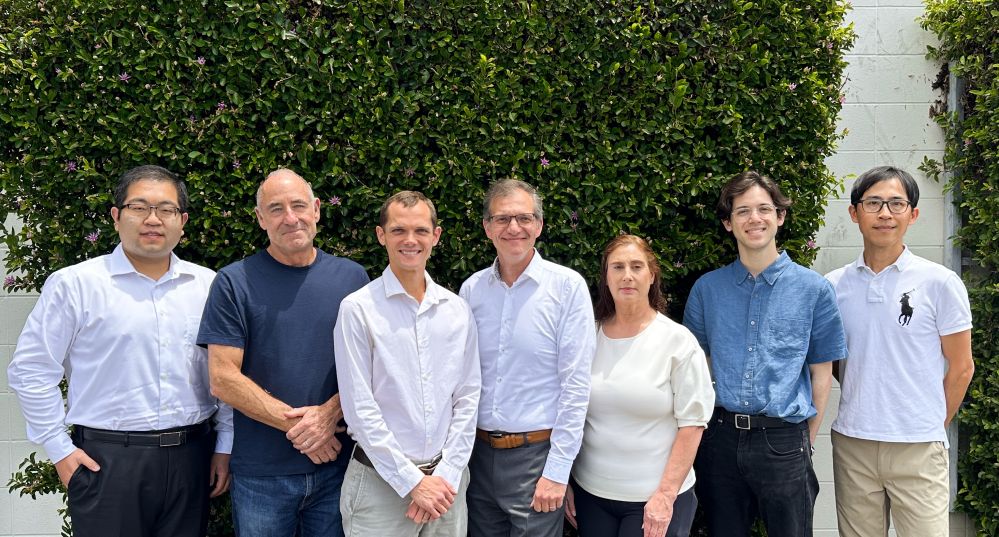Santa Barbara based startup Spero Renewables is seeking to disrupt the vanilla flavors market with tech it claims can create more cost-competitive natural vanillin.
Right now, consumer goods companies seeking vanilla flavors have several options:
- Vanilla beans/extracts, which come with a hefty price tag but a consumer-friendly label;
- Vanillin from petrochemicals, which dominates the market but is considered an ‘artificial flavor;’
- Vanillin from bioconversion of ferulic acid in rice bran that can be labeled as a ‘natural flavor’, a market led by Syensqo (recently spun out of Solvay);
- Vanillin from cloves to wood pulp to conifers, which may or may not be considered natural depending on how it’s processed and where it’s sold;
- Vanillin produced by genetically engineered baker’s yeast via precision fermentation,* which is considered natural in some jurisdictions but not in others.
Spero Renewables, which emerged on the scene a few years ago with a method to covert ferulic acid from corn bran to vanillin via bioconversion, has since honed its process, enabling it to go directly from a corn fiber extract—as opposed to purified ferulic acid—to vanillin, potentially opening up a new source of natural vanillin to the market.
According to Spero, which was founded by UCSB chemistry professor Dr. Mahdi Abu-Omar, its vanillin “conforms to both US and European regulations as a natural flavor and can be described as such on ingredient labels. All raw materials are derived from a natural source, the processing is natural, and the flavoring substance is present in nature.”
He adds: “Most sources of rice [the current primary source of natural vanillin made via the ferulic acid bioconversion process] are located overseas and supply is unpredictable.” However, corn is “cultivated across the US and has a stable supply and price,” says Abu-Omar, who is working with a corn milling plant in the Midwest with a view to demonstrating Spero Renewables’ tech at pilot scale.
“Stable corn crops and abundant supply assure that Spero’s natural vanillin will maintain its consistent high quality and competitive pricing, on par with or even lower than that of rice-bran derived vanillin, and less than a third the cost of vanilla bean vanillin.”
How it works
Abu-Omar tells AgFunderNews: “We take corn fiber, which is a byproduct from corn milling plants [usually used as low-value cattle feed], and rather than separating the ferulic acid and purifying it, we take a low-purity extract and then use non-GMO microbes to convert the ferulic acid in that extract to vanillin, which we then purify.
“We don’t go through expensive steps to purify the ferulic acid first, which is what other players [who produce vanillin from rice bran] do. We have an integrated technology that goes directly from the corn fiber extract to make vanillin, which we isolate and purify. And that has a huge advantage vs the process of isolating and purifying ferulic acid first. To do the bioconversion, we’re using a bacterium that hasn’t been used for producing vanillin in the past, that is different at least to the one Solvay [now Syensqo] is using based on what we see in the published literature.”
He adds: “Our original business model was to purify the ferulic acid from that corn fiber extract and then supply that ferulic acid to the market for other companies to convert into vanillin. But we’ve pivoted after developing the technology to integrate the conversion of the corn fiber extract directly to vanillin, a process that we have now patented.
“So we have patents granted and we have a couple pending, but they cover the biomass extraction of the low-purity ferulic acid extract from the corn fiber as well as the bioconversion to vanillin and the use of the novel microorganism for doing that conversion.”
Next steps
According to Abu-Omar: “We’ve demonstrated the technology all the way through to making hundreds of grams of pure vanillin as samples for the market. We can also show that our vanillin comes from corn based on its isotopic fingerprint, plus we’ve done sensory testing and purity testing and everything looks fantastic on that front.
“We’re now in conversations with several corn mills, and with one dry corn mill in particular in the Midwest that has a contract with farmers using non-GMO corn, we’re advancing the conversations to be able to do pilot work that will allows us to make tens of pounds of product.
“We’re currently raising $2 million to be able to run the pilot for three to four months to validate this at larger scale and get more samples out to potential customers. On a commercial scale, with a joint venture with a corn mill, we believe the integration of our technology is going to require a raise of around the $25 million mark. But that would lead to product and revenue that’s much higher than that number annually.”
He adds: “For selling the vanillin we’re in conversation with a number of flavor and fragrance companies and warehouses that sell ingredients b2b, as Spero is a technology company, not a sales and marketing company.”
According to Abu-Omar, the market for natural vanillin has already been proven, with a growing number of companies willing to pay a premium to make ‘no artificial’ claims on pack but unable to pay for vanilla beans/extracts, which are extremely pricey and in short supply, although startups such as Vanilla Vida are trying to address this.
“We can’t match the price of synthetic vanillin, but we can be very competitive with existing sources of natural vanillin.”
*Evolva, which developed tech to make vanillin via precision fermentation, recently signed a deal with a “global F&F customer” whereby it will supply an undisclosed amount of this vanillin at “very competitive pricing over a multi-year period.”





